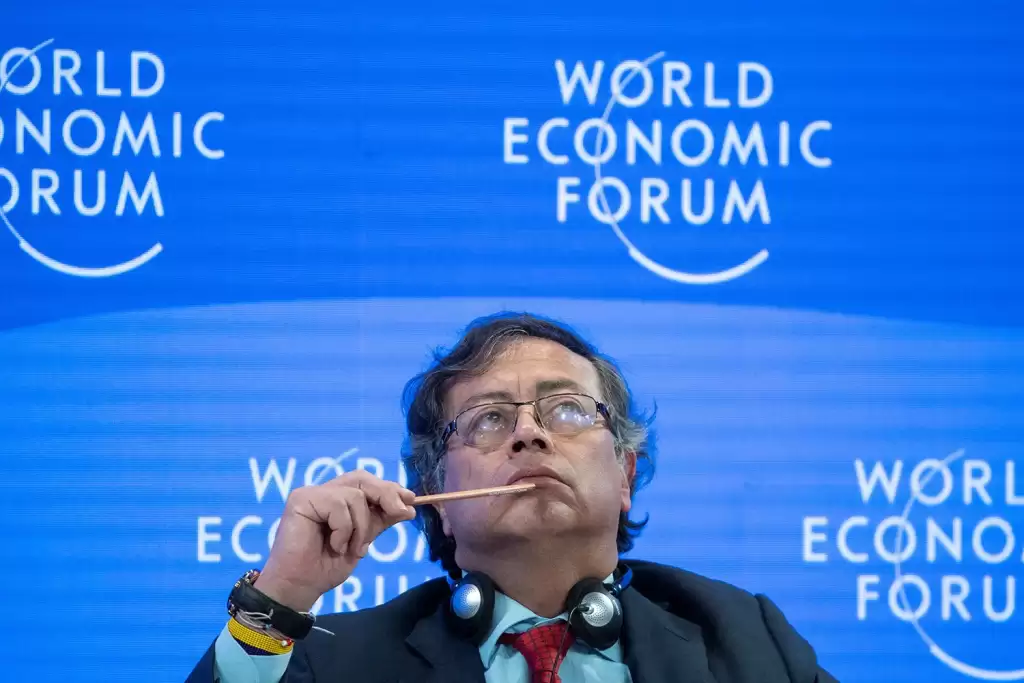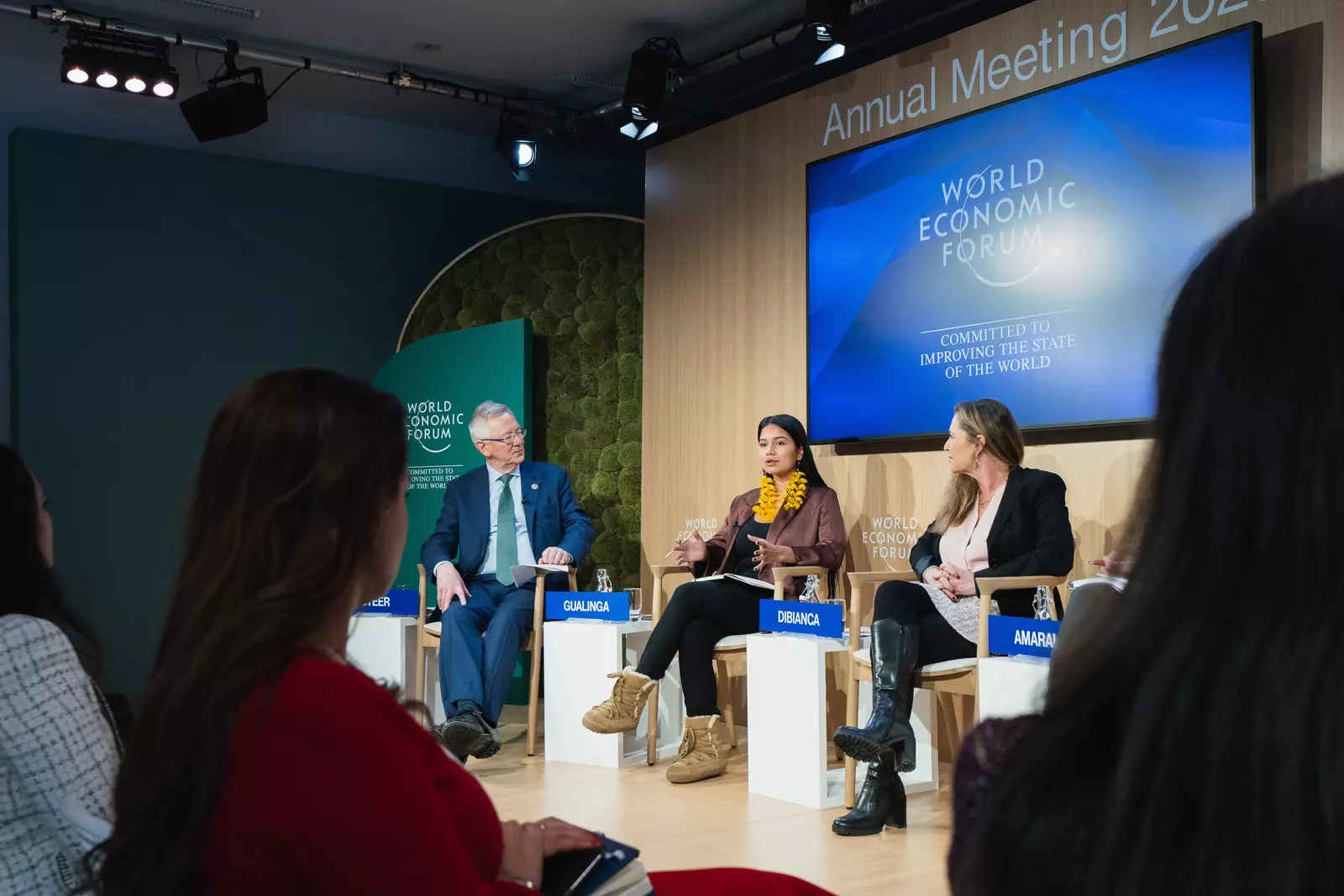The WEF is an inter-non governmental lobbying organization, mainly funded by multinational corporations, that was founded in 1971 to influence global agendas. Every year, leaders from government, business, and civil society convene to address priorities for the year ahead. Here’s what went down in Davos this year.
Today’s Crises: Cost of Living, Extreme Weather Events
At Davos, hundreds of activists came out to attend The Young Socalists Switzerland’s World Economic Forum rally to demand a worldwide wealth tax for the climate. They added, “There is a need for a debt cut for the countries of the so-called Global South who are suffering from huge debt mountains imposed on them today. Only by waiving off these debts can they afford to make the necessary investments to adapt to the climate crisis and to decarbonise!”
This is not an unrealistic demand – in the absence of a wealth tax and better distribution of income, inequality is bound to swallow the poor. According to the World Economic Forum’s annual report about the biggest global risks, cost of living will be the #1 immediate risk for the next two years. With continued price pressures on food, water and energy, the world will see more demands for equality, more wage strikes, and more labour action. The only solution is the end of extractive economies.
Following cost of living, the #2 immediate risk to our planet is ‘Natural disasters and extreme weather events’. Indigenous voices in Davos highlighted how communities can be vulnerable to trends like sea-level rise and extreme storms. Fawn Sharp, of the National Congress of American Indians, reminded everyone of Washington State’s flooding and how catastrophic the sea-level rise was to her ancestral homeland.
20-year-old indigenous activist Helena Gualinga added that some years ago, the floods washed away 80% of her community in Amazon (if you find the time, do watch the full Open Forum Davos discussion here. It features marginalised voices who raise their concerns about climate justice, disability justice, indigenous rights, and more).
Tomorrow’s Catastrophes: Large-scale Involuntary Migration, Biodiversity Collapse
If international commitments made “on paper” during COP processes are not followed up on the ground, we will start to witness far worse catastrophic collapse. In fact, we already are: Ama Francis from the International Refugee Assistance Project, spoke of climate migration and displacement, calling our attention to how climate disasters are displacing up to three times more people than conflict (we all know which communities are disproportioantely harmed).
At the Opren Forum, Agnes Callamard, Secretary-General of Amnesty International, framed the issue of climate displacement as being “driven by the interlinking consequences of repeated extreme weather events, environmental degradation that erodes livelihoods and the lack of assistance to rebuild and restore.”
Corporate Climate Action
In her newsletter, Lubomila Jordanova, CEO & Co-Founder of Plan A & Co-Founder of Greentech Alliance, dives deep into the key discussions around corporate climate action. “Businesses were warned by António Guterres (Secretary-General of the United Nations) about the dangers of ineffective corporate efforts to achieve net zero and called for faster action,” she notes, “With determination he confirmed the progress made by businesses last year is ignorable against the increased investments in fossil fuels and lack of focus on actual decarbonisation against planning for it.“
So what was the main concern? Continued investment in fossil fuels: confirming more of these projects will erase any possibility of nations reaching their Paris agreement targets. Here’s the thing: if a company invests in fossils today, it’ll take years for the project to come alive. By then, experts point out, we’ll certainly be lead to a 3-4°C degree scenario, leading to close to a billion climate refugees by 2100.
Truly, there’s no time to sit back. Stephanie Dickson, Founder Green Is The New Black, Host Live Wide Awake Podcast, and Co-Founder UNTAM3D, wrote of the speech given by Al Gore, Former Vice President of the United States:
“Powerful words from Al Gore at the World Economic Forum last week reminded us of the urgency and importance of taking action to protect our planet and ourselves. In just 4 minutes, he articulates: [..] Despite all these promises from the last few years to cut emissions, emissions are still going up. We’re still putting 160 million tons of CO2 into the atmosphere. The accumulated amount is now trapping as much extra heat as would be released by 600,000 Hiroshima-class atomic bombs exploding every single down on the earth. We need to stop using the sky as an open sewer.” He ended with a reminder that political will in itself is a renewable resource.

Parting thoughts
In spirit of Al Gore’s speech, we wanted to end with something hopeful: Colombia’s newly inaugurated leftist government has declared that they will not give the green light to any new oil or gas projects in line with their plans for a sustainable economy! Petro’s speech at the panel insisted on his desire for a green Colombian economic model. And Brazil’s team in Davos reiterated Lula’s commitment to reaching net-zero deforestation by 2030.
“We have decided not to award new oil and gas exploration contracts, and while that has been very controversial, it’s a clear sign of our commitment in the fight against climate change,” Irene Vélez, Colombian minister for mines, said during a panel at the World Economic Forum in Davos. “This decision is absolutely urgent and needs immediate action.”
FEATURED IMAGE: via World Economic Forum by Sikarin Fon Thanachaiary | IMAGE DESCRIPTION: Helena Gualinga, Co-Founder, Indigenous Youth Collective of Amazon Defenders, Ecuador speaking at the ‘Don’t let greenwashing fears stall credible action’ session at Davos 23


